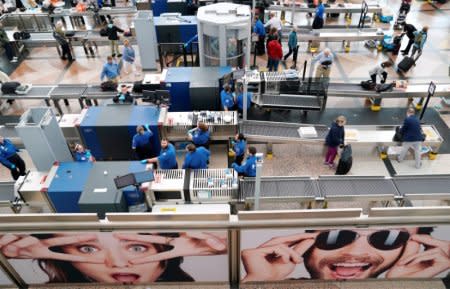TSA says doesn't search phones, devices of air travelers for content

Thomson Reuters
By David Shepardson
WASHINGTON (Reuters) - The U.S. Transportation Security Administration, responding to a lawsuit, said on Tuesday it does not search devices like the mobile phones of air travelers for electronic content.
The American Civil Liberties Union Foundation of Northern California filed a Freedom of Information Act lawsuit last week in San Francisco, seeking government documents from the TSA detailing "searches of electronic devices belonging to people traveling on domestic flights."
According to a TSA letter to the ACLU Tuesday that was reviewed by Reuters, TSA said it: "does not search electronic devices for electronic content that may be contained on the device, and does not extract data from passenger electronic devices." An agency spokesman said the letter "confirms we do not search the contents of electronic devices."
The ACLU, which first sought the records in December 2017, did not immediately respond to a request for comment.
The TSA said in 2017 it implemented stronger screening procedures for carry-on items that required passengers to place all electronics larger than a cell phone in bins for X-ray screening.
The screening "is solely intended to verify that there has been no physical tampering or hidden threat placed within the electronic device," it said. TSA agents may also use Explosives Trace Detection technology to swab and test electronic devices for explosives.
The ACLU lawsuit seeks records related to policies regarding the search of passengers’ electronic devices; equipment used to search, examine, or extract data from passengers’ devices; and training of officers conducting the screening and searches of electronic devices. The ACLU said the TSA "should not be digging through our digital data without a warrant."
Customs and Border Protection (CBP) agents do, at times, conduct searches of electronic devices at international border crossings, including airports, without first obtaining a warrant.
The ACLU and Electronic Frontier Foundation in September 2017 sued the Trump administration over the practice in Boston. The ACLU said last week that CBP conducted 5,000 searches of electronic devices at airports in 2015 and 30,000 searches in 2017. The government has asked a federal judge to dismiss the suit.
(Reporting by David Shepardson; Editing by Bernadette Baum)
See Also:

 Yahoo News
Yahoo News 
